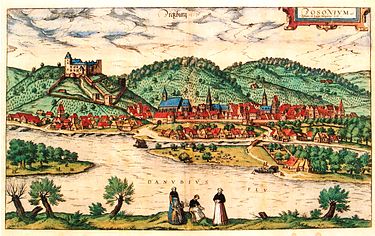The Pozsony Toll Exemption in the Angevin and Sigismund Eras
DOI:
https://doi.org/10.15170/SPMNNV.2017.09.05Keywords:
Bratislava, 14th–15th century, Pozsony town privilege, trade, toll exemption, Danube toll stations, Umschlagsrecht, smugglingAbstract
This study examines the question of the toll exemption of the citizen of Pozsony (Bratislava, Slovakia) in the Angevin period and under the rule of Sigismund of Luxembourg. Beyond interpreting the privilege guaranteed in the town charter issued by Andrew III in 1291, we discuss the problems connected to the validity of the privilege. The town charter ensured the Pozsony hospites the toll exemption in the entire kingdom, but only those could benefit from the privilege who travelled with the purpose of trade. Through royal confirmations, the country-wide toll exemption remained in effect throughout the Angevin and Sigismundian periods. All the lawsuits with known outcome ended with the acknowledgement of the exemption from tolls of the burghers of Pozsony except one case: in 1357 the cathedral chapter of Esztergom managed to break the privilege of the exemption with reference to the ancientness and pious donation of their right to collect tolls. Mentions from the reign of Louis I, however, also imply the existence of a lost but partially reconstructed charter issued by Charles I, which granted the Pozsony townspeople a regionally restricted toll exemption. The latter charter of privilege seems to have provided toll exemption for any kind of traffic, meaning transport of persons and goods on the Pozsony–Visegrád and Pozsony–Buda routes (meaning, the routes to the royal court) on and beside the Danube. Charles’s charter providing a ‘Danube toll exemption’ was probably confirmed by Louis, because court records indicate that the privilege was in effect.


